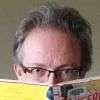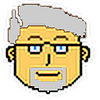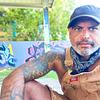Take a photo of a barcode or cover
I really really enjoyed this book. There was one plot line that didn't really go anywhere, which is why I only gave it 4/5 stars. Otherwise, thoroughly enjoyable.
I'm conflicted on this one. On the one hand, there are waaay too many lectures in the dialog. Everybody is constantly lecturing everybody else on everything. There's 2+ pages devoted to one character lecturing on the how's and why's of him being fat and what it is about our society that makes everyone fat. That's annoying. The main thing Cory does well though is extrapolate trends. There's a ton of little trends taken from the advancements he talks about that you might not notice but build up to something cool. I think Cory was the one who originally recommended the Red/Blue/Green Mars trilogy for the author's ability to invent drivein movies and extrapolate out the sexual politics that would come from them. Well, the best parts of this book are that stuff. It's not great literature but it's worth reading if you have even a little interest in the kind of "5 minutes into the future" reportage Mr. Doctorow excels at.
I found myself comparing this to William Gibson's Blue Ant series, mostly unfavorably (from me, that series netted only 3 stars). This book was rambling and long, with mostly unconnected sections. It was originally serialized on Tor's website, and perhaps it was written with that in mind. I enjoyed the character of Suzanne Church (even if she was mostly 2D) and the epilog, which was really excellent. The idea of Makers was also interesting, but didn't feel well thought out. Bringing Disney in half-way through felt very forced. I'll look for other books by Cory Doctorow, but after a break.
Had to read at least one Doctorow book to the end and this one was less obnoxious than Little Brother, but certainly not better. I was hoping maybe the author was going to flip the script at the end and all the things I had had issues with were *intentional*...but alas.
Shitty portrayal of women, meaningless bad treatment of overweight people with the "fatkins movement", glorification of the hustle economy, comically evil bad guys, orchestrated conflict that didn't actually make sense...overall awful.
Shitty portrayal of women, meaningless bad treatment of overweight people with the "fatkins movement", glorification of the hustle economy, comically evil bad guys, orchestrated conflict that didn't actually make sense...overall awful.
I like Cory Doctorow's ideas for the future, and his writing is smooth, but I feel like his plotting's a bit weak. Still worth reading, but it doesn't quite have the through line I'd like.
Doctorow's novel tries to imagine the near future as impacted by inexpensive 3D printers just as much as we have in our time been impacted by the Internet.
The book follows two natural inventors who glom onto 3D technology, inspire a collective project that spans the globe, and find themselves doing litigious battle with Disney.
In brief: new tech + hive mind vs. corporations.
This formula has become something of a theme for Doctorow. But as Nick Lowe once sang, "This rut I am in, it once was a groove," and I worry with Makers that Doctorow's groove has become a rut. Especially because we find him once again digging deep into Disney, which he's returned to time and again since his debut novel, Down and Out in the Magic Kingdom. And that's not the only plot device that will be familiar to longtime Doctorow readers.
My biggest problem with the book, though, has nothing to do with ongoing subjects of his fiction. It's specific to this book, related to the subject of the global hive-mind operation he describes. It involves (non-Disney) theme parks built up around nostalgia for objects created in the early days of 3D tech, and somehow the collective watching of these halcyon objects helps transform the exhibit into something of a story for people who visit. (If the ride sounds a bit like an extrapolation of Boing Boing, the website of which Doctorow is a partner, then you won't be surprised that the novel's journalist character, Suzanne Church, ends up seeming like a Boing Boing blogger.) The problem is, I can never quite figure out what the ride is like, how it functions, what it's like to experience. Since the ride is the engine that fuels the book's narrative, its ambiguous quality gives Makers a mushy-at-best spine.
In addition, an end-of-novel turn of events (involving the relationship between Disney and the protagonists) is so sudden, and so goes against everything the characters have stated up until that point, that it seems more like a quick way to bring the book to a close than a natural or otherwise meaningful development.
Still, there's tons of fun in here. Doctorow really can look clearly ten minutes and ten years into the future, and his take on 3D tech, on the science of dieting, and on business culture are highly entertaining, and much more thought-provoking that the story itself.
The book follows two natural inventors who glom onto 3D technology, inspire a collective project that spans the globe, and find themselves doing litigious battle with Disney.
In brief: new tech + hive mind vs. corporations.
This formula has become something of a theme for Doctorow. But as Nick Lowe once sang, "This rut I am in, it once was a groove," and I worry with Makers that Doctorow's groove has become a rut. Especially because we find him once again digging deep into Disney, which he's returned to time and again since his debut novel, Down and Out in the Magic Kingdom. And that's not the only plot device that will be familiar to longtime Doctorow readers.
My biggest problem with the book, though, has nothing to do with ongoing subjects of his fiction. It's specific to this book, related to the subject of the global hive-mind operation he describes. It involves (non-Disney) theme parks built up around nostalgia for objects created in the early days of 3D tech, and somehow the collective watching of these halcyon objects helps transform the exhibit into something of a story for people who visit. (If the ride sounds a bit like an extrapolation of Boing Boing, the website of which Doctorow is a partner, then you won't be surprised that the novel's journalist character, Suzanne Church, ends up seeming like a Boing Boing blogger.) The problem is, I can never quite figure out what the ride is like, how it functions, what it's like to experience. Since the ride is the engine that fuels the book's narrative, its ambiguous quality gives Makers a mushy-at-best spine.
In addition, an end-of-novel turn of events (involving the relationship between Disney and the protagonists) is so sudden, and so goes against everything the characters have stated up until that point, that it seems more like a quick way to bring the book to a close than a natural or otherwise meaningful development.
Still, there's tons of fun in here. Doctorow really can look clearly ten minutes and ten years into the future, and his take on 3D tech, on the science of dieting, and on business culture are highly entertaining, and much more thought-provoking that the story itself.
adventurous
inspiring
reflective
medium-paced
MILDLY SPOILERY AND RANTY.
Doctorow’s books are, I think by design, heavy on the fictional explications of various cultural and social forces that are crashing through history; light on the characters. The role of art and design in the age of mechanical reproduction; rights in the face of the total awareness society; how the state’s monopoly on the lawful use of force works once the state is no longer the biggest bully on the block, hacking, cooperative efforts, yaddy yaddy. At least the ones I’ve read are less about individuals coping with the things and more about the things themselves. Whether by accident or design, very few of his characters are particularly memorable; they’re just a little smarter, a little nicer, a little meaner, whatever. The nice thing is that they don’t get in the way of the ideas. The bad thing is that they are sometimes hard to care about.
In Little Brother and For the Win, I was so engaged by the explication, I didn’t care. I was emotionally invested in the tension between civil liberties/total awareness society in the one and workers’ rights/world wide corporations in the other before the books were written. But in Makers (and the other two I’ve read, Down and Out in the Magic Kingdom and Eastern Standard Tribe) I didn’t already care. I’m benignly aware that the Makers’ movement exists. I have no emotional investment in it. I suspect the characters in this book are drawn from the type of person who is deeply engaged in the culture, but I’m not attuned to the nuances, so many of the characters become hard to distinguish, and their intense nostalgia for the flowering of Maker culture is intense nostalgia for a party I wasn’t at.
There were some great lines. Steve Jobs is in a lamasery. That’s awesome. The villains were lawyers, but saurian enough to amuse me. There were ideas simmering in this story I think I could have really liked. See, there’s these rides, in tension like the Two Towers of Middle Earth. One set are pirated; set up in empty shopping malls and corn fields, set up by true believers and crowd sourced by every person who goes through them (the riders interact with the ride, telling the ride itself where they think this or that piece should be); creating a story of growth and loss that is deeply meaningful to the people who ride it. The others are at Disneyland itself; prepackaged, produced by experts and focus groups; prepackaged and calculated to excise maximum profit. Two very different stories –
Only we never hear what those stories really are. I suppose we’re supposed to fill in from our own experience. Meh. And the clash (SPOILER) just kinda peters out. The dramatic climax is pulling a hoax on a muck raking journalist who seemed to me to be a minor irritant, like the people who troll on newspaper comment fields rather than a believable villain.
Given, I might feel different if such trolls showed up to my parties. And I have gotten pretty upset by some of the things they’ve said about my work over the years, and there are troll-like figures who have figured out how to use the machinery of government in a way that is personally inconvenient. But for the most part, they seem like sad, bitter, impotent individuals best just avoided. The real villain of the piece was the overall economic catastrophe that was simmering right outside the main story line. I wanted them to hack that.
I may be projecting.
Makers ends on an ambiguous note. Hacking proprietary equipment, good; body hacking, not so much. Our hero-journalist-Mary-Sue was implicated in publicizing technology that resulted in a lot of joy and a lot of death. Death stalks the land like a giant stalky thing. There was all sorts of interesting possibilities lurking there.
It was a good glimpse of a world mine brushes against. Maybe an important world.
Doctorow’s books are, I think by design, heavy on the fictional explications of various cultural and social forces that are crashing through history; light on the characters. The role of art and design in the age of mechanical reproduction; rights in the face of the total awareness society; how the state’s monopoly on the lawful use of force works once the state is no longer the biggest bully on the block, hacking, cooperative efforts, yaddy yaddy. At least the ones I’ve read are less about individuals coping with the things and more about the things themselves. Whether by accident or design, very few of his characters are particularly memorable; they’re just a little smarter, a little nicer, a little meaner, whatever. The nice thing is that they don’t get in the way of the ideas. The bad thing is that they are sometimes hard to care about.
In Little Brother and For the Win, I was so engaged by the explication, I didn’t care. I was emotionally invested in the tension between civil liberties/total awareness society in the one and workers’ rights/world wide corporations in the other before the books were written. But in Makers (and the other two I’ve read, Down and Out in the Magic Kingdom and Eastern Standard Tribe) I didn’t already care. I’m benignly aware that the Makers’ movement exists. I have no emotional investment in it. I suspect the characters in this book are drawn from the type of person who is deeply engaged in the culture, but I’m not attuned to the nuances, so many of the characters become hard to distinguish, and their intense nostalgia for the flowering of Maker culture is intense nostalgia for a party I wasn’t at.
There were some great lines. Steve Jobs is in a lamasery. That’s awesome. The villains were lawyers, but saurian enough to amuse me. There were ideas simmering in this story I think I could have really liked. See, there’s these rides, in tension like the Two Towers of Middle Earth. One set are pirated; set up in empty shopping malls and corn fields, set up by true believers and crowd sourced by every person who goes through them (the riders interact with the ride, telling the ride itself where they think this or that piece should be); creating a story of growth and loss that is deeply meaningful to the people who ride it. The others are at Disneyland itself; prepackaged, produced by experts and focus groups; prepackaged and calculated to excise maximum profit. Two very different stories –
Only we never hear what those stories really are. I suppose we’re supposed to fill in from our own experience. Meh. And the clash (SPOILER) just kinda peters out. The dramatic climax is pulling a hoax on a muck raking journalist who seemed to me to be a minor irritant, like the people who troll on newspaper comment fields rather than a believable villain.
Given, I might feel different if such trolls showed up to my parties. And I have gotten pretty upset by some of the things they’ve said about my work over the years, and there are troll-like figures who have figured out how to use the machinery of government in a way that is personally inconvenient. But for the most part, they seem like sad, bitter, impotent individuals best just avoided. The real villain of the piece was the overall economic catastrophe that was simmering right outside the main story line. I wanted them to hack that.
I may be projecting.
Makers ends on an ambiguous note. Hacking proprietary equipment, good; body hacking, not so much. Our hero-journalist-Mary-Sue was implicated in publicizing technology that resulted in a lot of joy and a lot of death. Death stalks the land like a giant stalky thing. There was all sorts of interesting possibilities lurking there.
It was a good glimpse of a world mine brushes against. Maybe an important world.
I wish I liked science fiction! I like science and fiction but the combination of the two rarely works out for me. I do keep trying though. I tried this book because I have, in the past, been an avid reader of Cory Doctorow's Boing Boing blog, and I like his Guardian columns on digital rights, and I basically agree with most of what he says.
This book has tons of interesting future technology ideas in it. The main story is about creating objects with 3d printers and the story contains lots of other assays into the future of economics, biotechnology, mass media, fitness, all kinds of stuff. However it just didn't work for me. I just got fed up with it all. There was nothing much wrong with the plot, and I thought the central characters were well written - especially in the later parts of the book after more time had passed and the relationships between them changed. Just overall the book wasn't my cup of tea.
LibraryThing tells me "LibraryThing thinks you probably won't like Makers (prediction confidence: high)" and it was about right I'm afraid.
This book has tons of interesting future technology ideas in it. The main story is about creating objects with 3d printers and the story contains lots of other assays into the future of economics, biotechnology, mass media, fitness, all kinds of stuff. However it just didn't work for me. I just got fed up with it all. There was nothing much wrong with the plot, and I thought the central characters were well written - especially in the later parts of the book after more time had passed and the relationships between them changed. Just overall the book wasn't my cup of tea.
LibraryThing tells me "LibraryThing thinks you probably won't like Makers (prediction confidence: high)" and it was about right I'm afraid.
Very creative ideas that sort of peter'd out. Worth reading even if you're not a Doctorow completists (I will continue to be).






